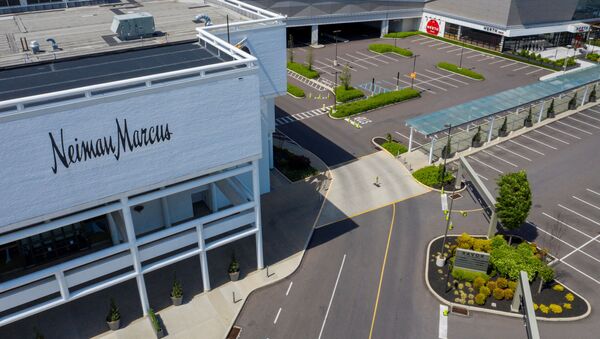Retail and tech data firm Coresight Research published a new report on Tuesday which provided an updated look at COVID-19’s economic impact on the US.
Coresight Chief Executive Officer Deborah Weinswig explained that many closures will occur in a type of domino effect.
"If the anchor tenants close stores in the mall, other tenants are likely to follow suit," the report detailed, as reported by the Baltimore Business Journal. "Some of these may enter into co-tenancy clauses that enable them to pay lower rent or break their leases if an anchor tenant leaves."
“Department and large apparel-chain closures in malls will therefore create a ripple effect that spells bad news for malls,” the release added, according to BloombergQuint.
The retail and tech data firm estimated that the total amount of US store closures for 2020 will be somewhere between 20,000 to 25,000. For the sake of comparison, at least 9,821 retailers closed their businesses in 2019.
Though many business owners were negatively impacted by the pandemic and associated containment measures, some stores have managed to survive the monthslong temporary closures and recover. The report highlighted that US clothing retailer Abercrombie & Fitch has managed to regain 80% of its sales since the nation began reopening for non-essential businesses.
Similarly, “Gap Inc. reported that its reopened stores have managed to capture 70% of last year’s sales.”
While some experts fear a second wave of the novel coronavirus will emerge, US President Donald Trump argued Friday that Americans will enjoy “one of the best years we’ve ever had economically” in 2021, reported Fox Business. However, the positive announcement regarding US employment numbers was overshadowed by the president’s uncouth invocation of the late George Floyd.
Democratic presidential nominee and former Vice President Joe Biden asserted on Tuesday that Trump “squandered” the economic expansion brought about by former US President Barack Obama’s administration.
“President Trump cut taxes for big corporations and the richest Americans instead of investing in the middle class. Trump drove manufacturing into a recession across the Midwest. And Trump systematically stacked the deck against working families who were struggling to get ahead,” he declared in a news release, as reported by the Washington Times.
According to a recent report from the National Bureau of Economic Research, the US promptly fell into a recession during the early February stages of the pandemic.


